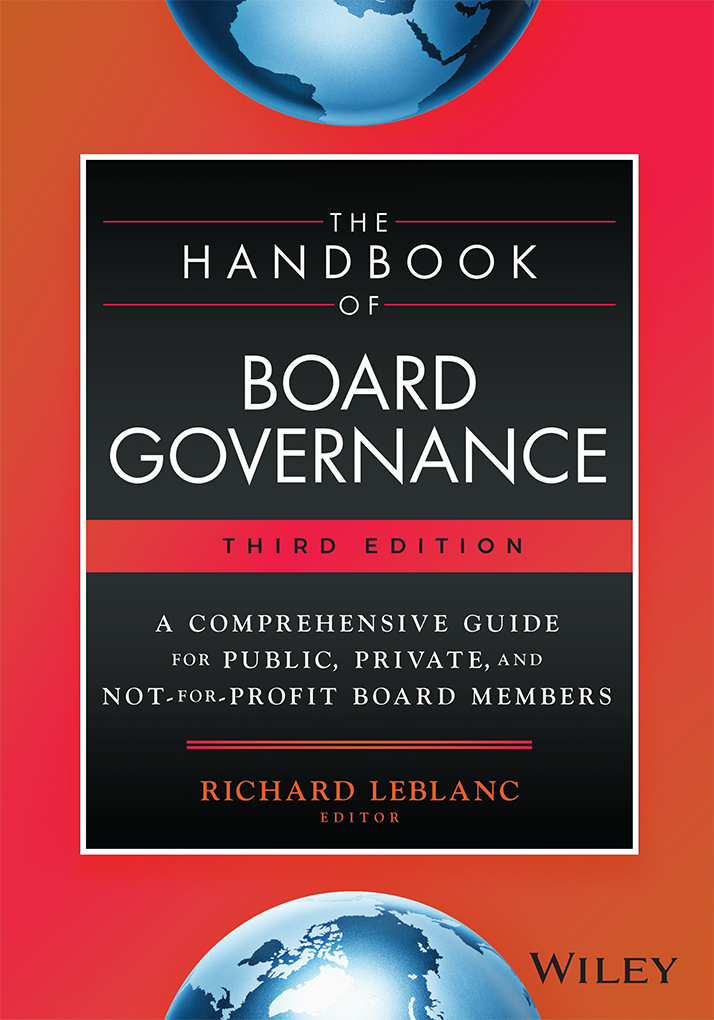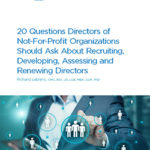These are disguised but true stories.
A director who has never operated a plant or worked in the company’s industry chairs the board’s health and safety committee. Internal controls are missed and poison in the company’s products kills several customers.
A director from the food industry chairs the bank’s risk committee. The director does not understand complex derivatives. The bank loses hundreds of millions of dollars in risky trades. (This happened twice, in two different banks. In the second bank, which lost billions, the risk committee chair was from a museum that received donations from the bank.)
Many directors on this third board have no experience in the company’s industry or in the complex overseas markets in which the company operates. The company has alleged widespread bribery, for which the industry is notorious. The CEO is arrested and the company’s brand is splashed all over the news.
This director chairs a company’s strategy committee but has never worked in the industry. The company loses 75% of its stock value. It takes the company years to finally bring industry experts on to the board, but it may be too little too late.
Many directors on this board have never worked in the industry and do not understand financial reporting necessary to sit on this board. They do not recognize potential fraud and inappropriately incent management. The company goes from an iconic Canadian brand to almost nothing. Shareholders lose billions.
In Canada, prior to the arrival of a shareholder activist compelling necessary board change, this board did not even have a single director (other than the CEO) with experience in the very industry in which the company operates. The stock is now up 30%.
There are several other examples. In all of the above, the boards supposedly looked “great.” They were composed of high-profile, so called “blue chip” directors – former politicians, ambassadors, company CEOs, presidents, consultants, lawyers, academics and so on, yet there were all abject failures.
In Canada, as in several other countries, you do not have to understand the business to sit on the board. Shockingly, in Canada, a director does not even have to be financially literate (at least initially) to sit on the audit committee of a public company. Yet we expect these directors as fiduciaries to oversee shareholder investments and the company’s best interests. The requirements for being a public company director are astonishingly minimal.
The vast majority of directors are selected on the basis of formal independence, yet the academic evidence runs counter to this. I recommended to the Office of Superintendent of Financial Institutions in a study I was asked to do, that boards of financial institutions should have directors with industry and risk expertise. This is now the law in Canada – but it took until 2013. The SEC in 2009 (post financial crisis) enacted a law, citing my work, that directors had to be selected on the basis of qualifications, skills and competencies.
One reason activist directors are frustrated, they tell me, is the astonishing lack of experience directors have, from the industry that is necessary for the company’s strategy, and with solid track records of value creation. They, and the media, are now scrutinizing the background and expertise of directors. This is a welcome development. There needs to be a fundamental change in the way directors are selected, and the ability of shareholders to remove directors who do not have the background or experience.
The three most important attributes for a director are knowledge of the business, financial acumen and backbone. Most directors are not selected on this basis. If you do not have this, directors sit in meetings without any ability whatsoever to contribute meaningfully. Most of the time, they are silent, pretending to understand. They are out of their depth and taking up a valuable spot.
Contrast this with directors who are selected properly, not on profile, pedigree or prestige, but on mindset, experience and strategic track record. These directors are a pleasure to see. Management has to bring their “A” game for these directors. These directors ask question after question after question, weighing in with their enormous experience (often much more than management) and telling management what to think of, what the flaws are in their thinking, and how to perform better and recognize opportunity to add value. These directors hold management accountable and have the heft to do so. They know what questions to ask and when to act. They have “been there, done that.” When necessary, they tell the CEO which way to part his or her hair. There is no ambiguity in these boardrooms who is in charge. Management is accountable to the board and the board to shareholders.
Sadly, these latter directors and boards are in the minority.
Posted by Richard Leblanc on Mar 16, 2013 at 3:33 pm in Member Selection, Competencies and Commitment |












